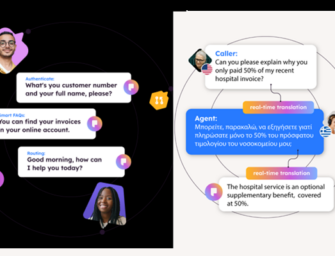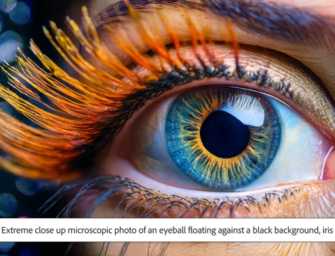More EU Physicians Use Siri Than Google Assistant or Alexa
A new report from DRG Digital says that about one in six European physicians are already using voice assistants and many consumers look forward to using Siri, Google Assistant and Alexa as part of their healthcare. The first key finding in the study of more than 1,600 physicians in France, Germany, Italy, Spain and the U.K. (EU5), is that 17% are using voice assistants are part of their practice today and another 39% are interested. That is 56% with a favorable disposition to using voice assistants with about one-third already using them.

Jeff Wray, Director, Europe and APAC Research for DRG Digital commented that voice assistant adoption will have implications beyond physicians and patients. Healthcare marketers and pharmaceutical companies should take note of the trend.
Physicians the world over are digitally-savvy gadget fans and tinkerers. So it’s not a total shock that many European physicians are already using these technologies as time-savers. We expect to see adoption increase over the next few years, and healthcare marketers, including pharmas, will need to adjust to this reality swiftly.
In addition, it turns out that Spain has the most active voice assistant user base among EU5 physicians. DRG Digital reports that 24% of physicians in Spain reported using voice assistants in their clinical practice.
Two-Thirds of EU5 Physicians Use Siri
Another intriguing finding by the study is that two-thirds of physicians report using Siri today. Another 50% claim to use Google Assistant and 27% use Amazon Alexa. That last number might be the most surprising given that Alexa doesn’t have a native home on a mobile device which is where you would expect physicians to be using a voice assistant most often today. It also suggests that close to 5% of all EU5 physicians have access to an Amazon Echo or other Alexa-enabled device.

While the numbers might appear surprising at first, the results seem logical. Apple and Google have iPhone and Android phones respectively with broad distribution globally, especially in Europe. Apple is considered a premium device which is often owned by upper income professionals and doctors certainly fit that demographic. So, Siri has a good head start in gaining access to affluent and well-educated users like EU5 physicians. In addition, Google Assistant has only been available on Android phones for about one-year and most models for considerably less. You should expect that number to rise as more physicians find themselves with new or upgraded phones that include Google Assistant natively installed.
The data point to a clear example of Apple’s opportunity for Siri in voice. While Siri has clearly fallen behind its rivals in functionality, the iPhone footprint, consumer familiarity and Apple imprimatur all mean it remains relevant and could break out again as a voice leader if features are added to close the gap. Alexa has a harder road getting into a professional workflow because it lacks the smartphone and business software point of entry today.
Nearly Half of EU5 Adults Interested in Voice Assistants for Healthcare Use Cases
The study also surveyed over 3,000 adults in EU5 countries. Nearly half (45%) expressed “interest in using voice assistants for health-related needs.” This response is favorable in spite of the fact that no healthcare related use cases for voice assistants are widely known. Consumers are simply projecting potential value onto voice assistants that can help with health related matters or make data more easily accessed.
In addition, the study found that EU5 adults are also becoming accustomed to using voice for search on smartphones. That is likely raising the level of interest in using voice for other use cases. The report summary states:
“Notably, nearly 1 in 4 European smartphone users use voice search on that device, and among these mobile voice search users, 1 in 4 say they are increasingly opting for voice search over typing in search terms.”
Where is the outcry over privacy concerns? In an era where Facebook and telecom carriers know our every interest and movement, the notion that voice assistants reflect a greater threat to privacy is simply not embraced by most consumers. They are instead looking for convenience. That is an attribute voice assistants have in abundance.
Amazon Echo and Google Home European Smart Speaker Sales Approach 6.5 Million Units in 2017
Amazon Echo Maintains Large Market Share Lead in U.S. Smart Speaker User Base









